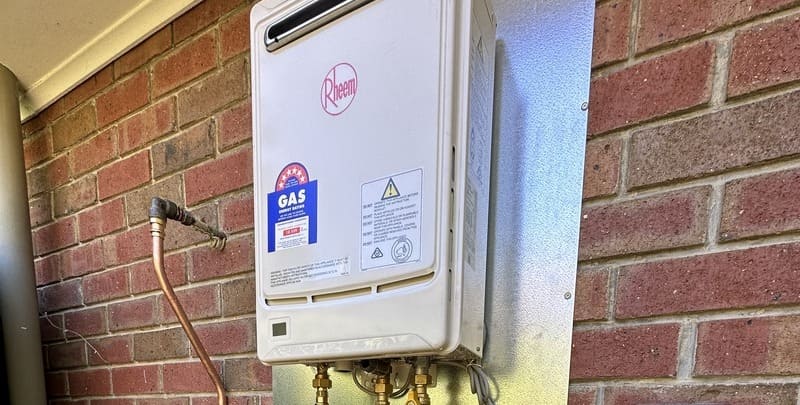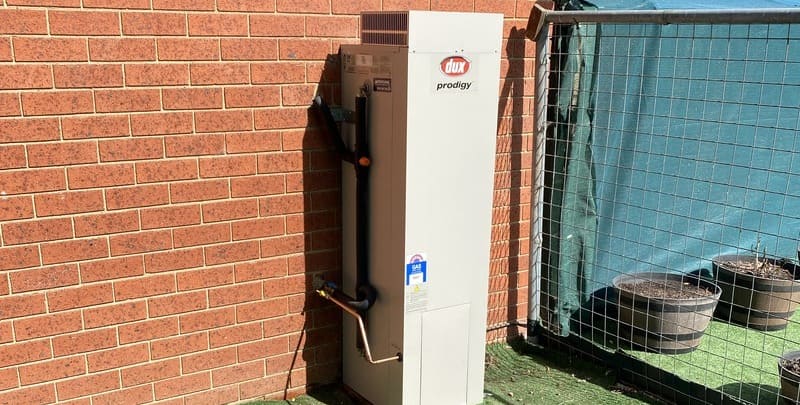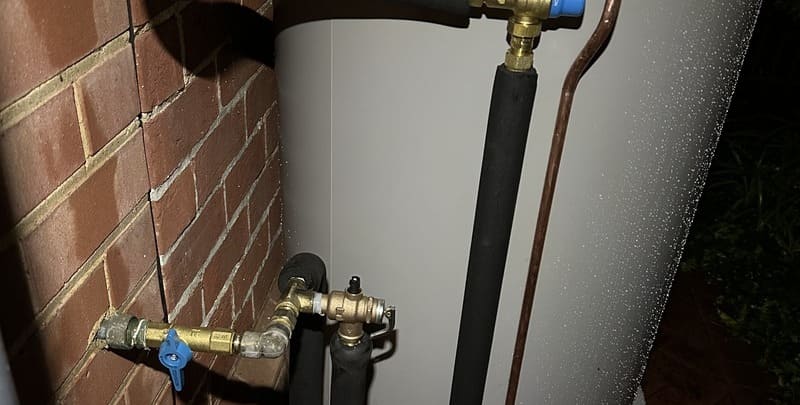
Why Is My Hot Water System Leaking? 6 Reasons Why
Found your hot water system leaking? As one of the most essential appliances in any Australian household, ensuring that your hot water heater is in peak working condition is vital. After all, we use it for everything from showering in the morning to washing the dishes in the evening.
A leaking hot water system is more than just an inconvenience. If undetected and left untreated, it can cause damage to your property, and can even become a major safety hazard to you and your family. So, let’s take a look at six key reasons why your hot water system might be leaking water, and what you need to do should you find yourself with a leakage problem.
1. Your Hot Water System Has Experienced Corrosion
One of the most common causes of a hot water system leak is corrosion. The various minerals and chemicals in the water will, over time, begin to corrode the internal surfaces of the hot water system.
Typically the tank and pipes are most susceptible to degradation. If you’re dealing with hard water, where the mineral content is at significantly high levels, that can accelerate the corrosion process even more. On top of this, simple exposure to moisture and air can also exacerbate system corrosion. All of which can lead to a hot water heater leak.

As the surfaces of your hot water unit begin to degrade, they start to weaken, resulting in the formation of cracks that enable water to escape. However, you can reduce the likelihood of this happening with some basic, regular maintenance. Simple tasks like flushing the system and adding corrosion inhibitors will help to minimise system degradation and potentially improve its lifespan as well. It’s worth noting that a leaking hot water tank is something you’ll need to replace, rather than repair.
2. High Water Pressure Causes a Leaking Hot Water System
Another potential cause of your hot water system leaking is water pressure that is higher than normal. An overly-high water pressure level will add extra stress to a hot water heater’s valves, fittings and connections. This can result in cracks or ruptures forming, again giving water an open opportunity to escape the system. The hot water system’s expansion tank can also fail due to high water pressure, which can also result in further damage.
To stop high water pressure from damaging your system, we strongly recommend getting a pressure limiting valve installed in the water supply line. This will help to keep the pressure at an acceptable level. It also can’t hurt to regularly keep an eye on the system’s pressure gauge. This will also indicate if the pressure is too high and give you the opportunity to rectify the problem.
3. Damaged Valves Have Left Your Hot Water System Leaking
One of the most important parts of a hot water system is its valves. They can include everything from the temperature relief valve to the cold water inlet valve and drain valve. Whether you have a gas hot water system or an electric model, the valves are responsible for several roles:
- Control the flow of water
- Temperature regulation (temperature relief valve)
- Water pressure regulation (pressure relief valves)
Of course, when these valves experience some natural wear and tear or become damaged, they can cause the system to leak water. There are some cases in which you may be able to repair the valves. However, you might also find that they are beyond repair and that you’ll need to replace them. Either way, a licensed plumber will be able to assist you.
The Importance of Regular Maintenance
Once again, regular maintenance is the best way to prevent a faulty pressure relief valve from becoming the cause of your leaking hot water system. Cleaning and lubricating your valves can help to prevent them from succumbing to damage or wear and tear. Proper installation and tightening of the valves will also reduce the likelihood of your water heater tank leaking.
4. Hot Water System Leaks Due to Loose Connections
Loose connections between the system’s pipes and fittings can also be a possible cause of your hot water system leaking. These connections can loosen over time, often as a result of poor installation, but also due to factors such as:
- System vibrations
- Fluctuations in temperature
- Changes in pressure
By checking the connections regularly, and tightening up any loose ones as you go along, you can help to prevent water heater leaks. We also recommend using the correct fittings and piping materials. This will help to reduce your hot water tank leaking at the joints.

5. Faulty Temperature and Pressure Relief Valve
One of the most vital safety features of hot water systems is the temperature and pressure relief valve (TPR valve). The function of this valve is to release water if the pressure or the temperature inside of the system get too high. This release of water prevents the hot water tank from exploding. However, if the pressure relief valve is faulty, it can release water into the system unnecessarily. This, in turn, can result in your hot water system leaking.
Over time, TPR valves can experience natural wear and tear or damage. Therefore, it’s important to maintain and test them regularly to ensure they keep performing their key functions. Once you find yourself with a faulty pressure or temperature relief valve, have a licensed plumber replace it as soon as possible.
6. As Hot Water Heaters Age, They Leak
You’re more likely to find your hot water system leaking as it gets older. As with any major household appliance, your hot water service has a limited lifespan – usually anywhere between 10 and 15 years. Whether you have an electric hot water system or a gas hot water heater, as it ages, it can become less efficient and more susceptible to leaks.
In some situations, you may be able to fix it with a simple repair. But if your service is reaching the end of its natural lifespan, a new hot water system may be the most appropriate and cost-effective solution. Once again, regular maintenance is the best way to prolong the life of your hot water tank and minimise the need for costly hot water heater repairs.
What To Do If You Have a Leaking Hot Water System
If you find your hot water unit leaking, acting quickly is vital. It helps to prevent any unnecessary damage to your home and minimises any risk to you and your family. Take the following steps:
- Shut off the power and water supply. Turning off the supply of power and water to your hot water heater will ensure the safety of you and those around you.
- Locate the source of the leak. Find exactly where the leak is coming from and look for indications of corrosion, faulty valves or loose connections.
- Contact a licensed plumber. Get in touch with a licensed expert in hot water systems to get them to diagnose and repair the leak. They will have the required tools and the expertise to accurately and safely fix the problem.
- Document the leak. Before the plumber arrives for hot water system repair or replacement, take photos of the leak and make notes if needed. This can help the plumber to better diagnose the problem and take the most appropriate course of action.
- Turn off the gas (if applicable). If you have a gas water heater, you may want to consider turning off the gas supply. This can reduce the risk of gas leaks or hazards as the plumber repairs your system.
- Clean up and reduce damage. If your hot water system leaking has resulted in any damage to the surrounding area, clean up the water and use towels or buckets to collect any remaining water that may be accumulating.
By taking these steps, you can quickly address the leak and ensure the safety of your home and family.
All in All …
Water heater leaks are not only highly inconvenient for even the calmest homeowners, they can also be expensive to repair. Luckily, by having a better grasp of the possible causes of your hot water system leaking, causes that include corrosion, water pressure and faulty valves, you’ll be able to take the right steps to reduce the risk of them occurring again.
Please note: This information is provided for advice purposes only. Regulations differ from state to state, so please consult your local authorities or an industry professional before proceeding with any work. See our Terms & Conditions here.
Published: 2023-05-16

















